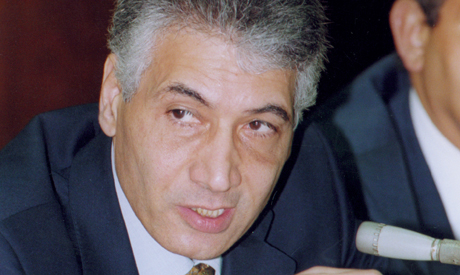Economic issues have fueled political debate over the last few months, warnings of bankruptcy are issued by the opposition while reassurances are offered by the government. Public opinion is manipulated by opposing parties who defend their political interests by painting their own picture of the economic situation.
Ahmed Galal, the managing director of the Economic Research Forum (ERF), gives his diagnosis of the Egyptian economy based on his field expertise.
What is the real size of the economic problem?
We do have a problem; the economic problem has three dimensions: short term macroeconomic imbalances; low growth rate; and social injustice.
The first dimension is a financial problem. We have a deficit of $15bn, we need that amount of money to finance the budget, it’s a factual thing, and we have to get an injection from outside to bridge the gap in the budget and the balance of payment.
In the second aspect of the problem, we have to reactivate the economy and generate employment; we have to provide 700,000 job opportunities annually for the new entrants to the labour market.
The social justice problem is who is getting benefit of growth. We have to come up with a solution for social issues, poverty, education, health. Social justice is not only about minimum wages.
Are these problems without solution?
There are solutions and there are policies that we can adopt. I don’t accept the idea that Egypt is collapsing; in 1991 the economy was in a worse shape. It’s true that we recovered in a distorted way, but we recovered. We are not paying a higher price than other countries in transition. The situation is bad but not without cure.
What do we need to do?
First, we have to achieve political settlement. We are a divided country, unstable and lacking security. Economic agents, whether domestic or foreign behave on the basis of expectations, if they are not confident, they are not going to invest.
Without political settlement, most Egyptians will not feel good about the rules of the game, I’m not saying that everybody should agree on everything, even in the United States and Europe they have political divisions.
Maybe we don’t need to agree on how to fix the problem, but we need at least to agree on the basic rules, like the transition of power, the checks and balances and liberties.
The second thing is we have to use the accumulated knowledge from running the country, we are not born today, and we don’t need to start everything over.
How well are we doing?
Not very well. There are some things that I find provoking, for example, social justice is too big to be collapsed into minimum and maximum wages, and the issue of finance is not only about sukuk. We talk over the issues that are not going to solve the problems, the problem is that we have a gap, but who cares whether the financing comes from the IMF or elsewhere.
We are not doing what we need to do, we are doing small steps that don’t add up. In the constitution process there were many problems, in the elections process some people talked about fraud, and now that the parliamentary elections are coming the problem of the elections law will appear.
Every time a step is taken in the right direction it is reversed.
Do you think the administration has the right policies to solve the problem?
We are holding a social dialogue with members of the government, with the participation of Cairo University, the Egyptian Center for Economic Studies (ECES), and the cabinet’s Information and Decision Support Center (IDSC).
The meetings discuss the aspects of the economic crisis, the first session’s main theme was the short term problems, it was held in the ERF in the presence of Ashraf ElAraby the minister of planning, Hani Kadry from the Ministry Of Finance, Rania ElMashat from the Central Bank and others.
The following sessions will tackle social justice, corruption and investment.
I think that the government has the main features of a programme, but they need to implement it, they are aware of what needs to be done.



